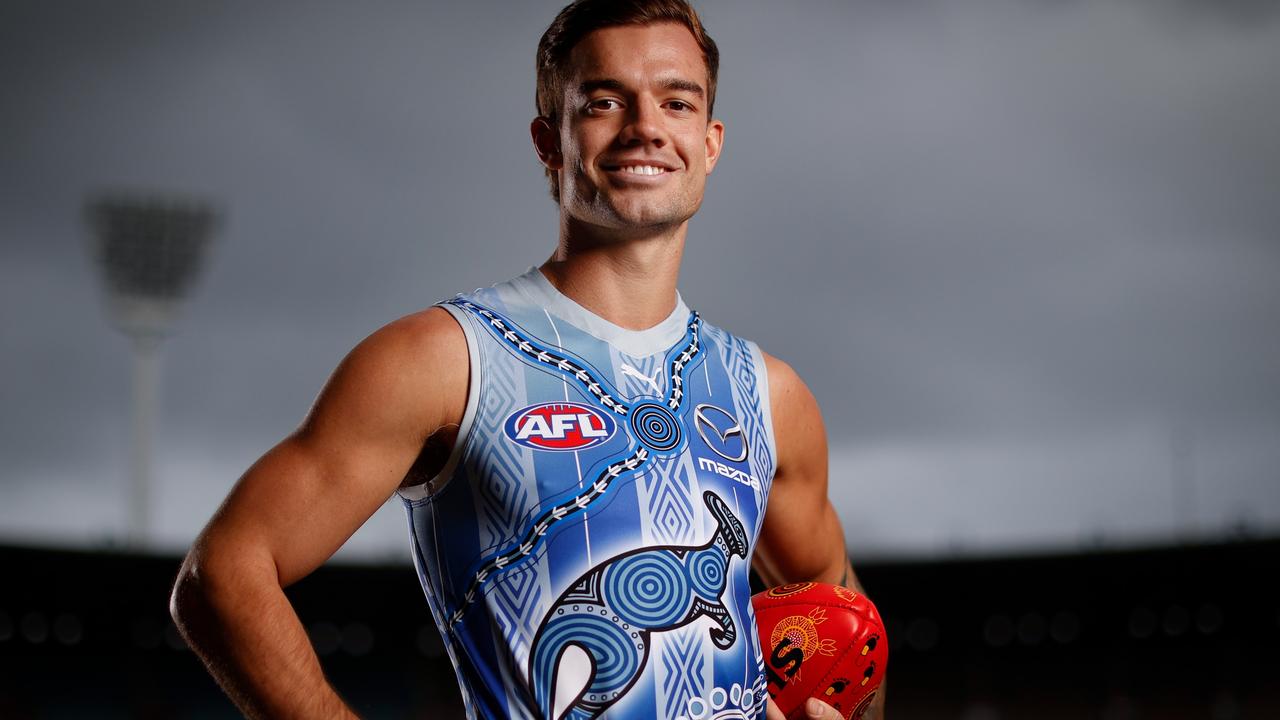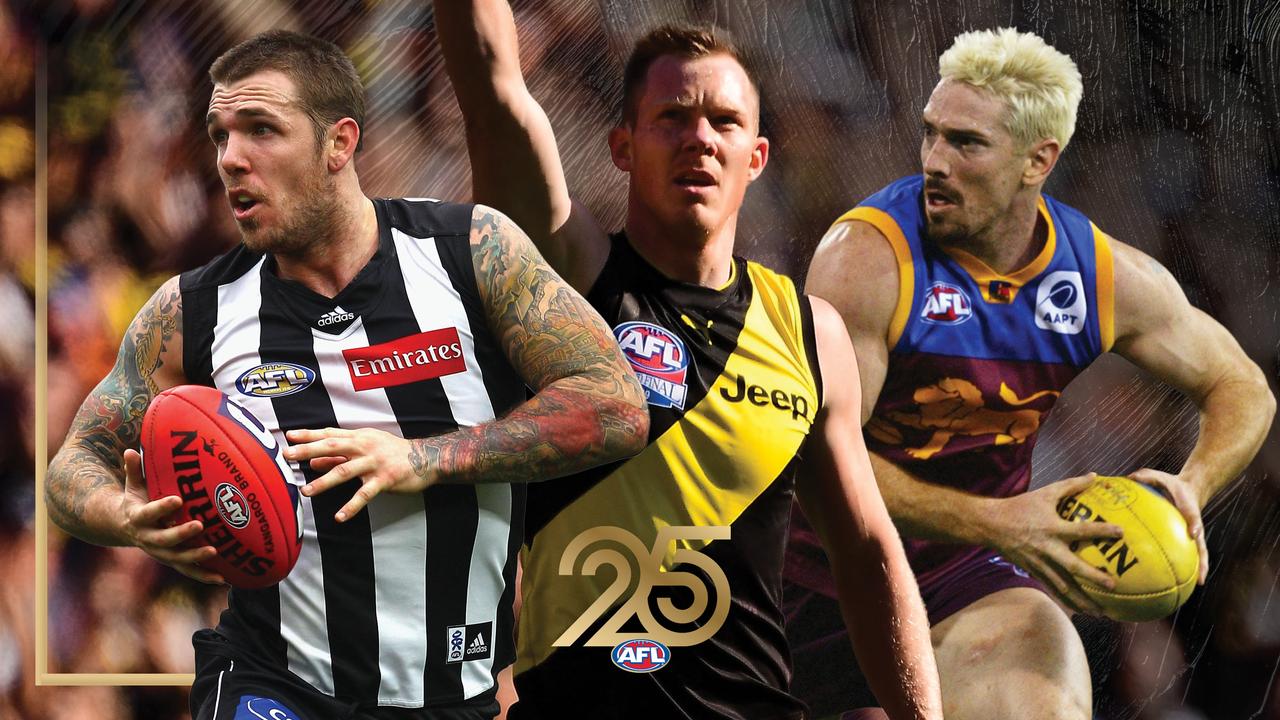Exclusive: Steve Johnson’s guide to surviving the AFL finals
SEPTEMBER finals can be a daunting place for first-timers, but not if they follow STEVE JOHNSON’S exclusive guide to surviving the only month that really matters.
IT was just after the three-quarter-time break of the 2004 preliminary final and I was headed back to my position when my opponent Chris Scott asked me a question.
He said something like: “Do you reckon you will win?” I said: “Yeah, I do.” He fired back with a challenge: “How about we have a bet?”
We were trailing Brisbane by four points, but we were right in the game. It was only my third final — in my first finals campaign — and on reflection, I wonder whether Chris wasn’t trying to get into the head of a relative finals novice.
FINALS TEAMS: STEVIE J DROPPED, SLOANE TO MISS
SHUT OUT: NEW LAW BANS DUSTY’S DAD
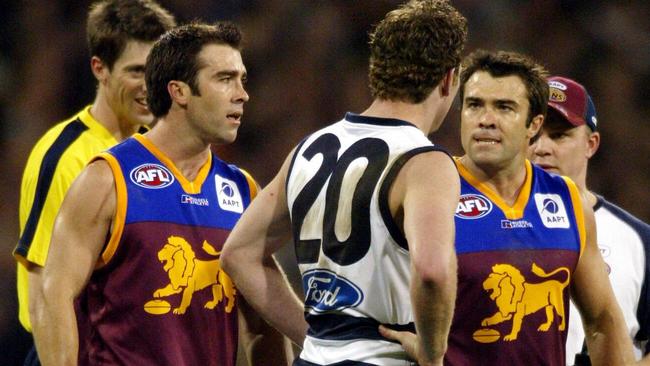
WHO WINS?: AFL EXPERT TIPS FOR FINALS WEEK 1
Maybe he wasn’t that confident, maybe he was. But on reflection I think the priority for him was planting the seed of doubt in my head.
The experienced Lions clawed their way to victory by nine points and went on to their fourth successive Grand Final; Geelong learnt the lesson that you have to take your chances in finals or else.
The funny thing is that a few years later, when Geelong was at the peak of its powers, we would definitely try to physically and verbally intimidate opposition teams who were less experienced than we were.
Starting tomorrow night, the remaining eight teams in the 2017 premiership begin the chase for the flag, and every mental edge will be used and every perceived fragility will be milked.
September can be a daunting place for first-timers. Here is my guide to those players making their finals in what is the only month that really matters.
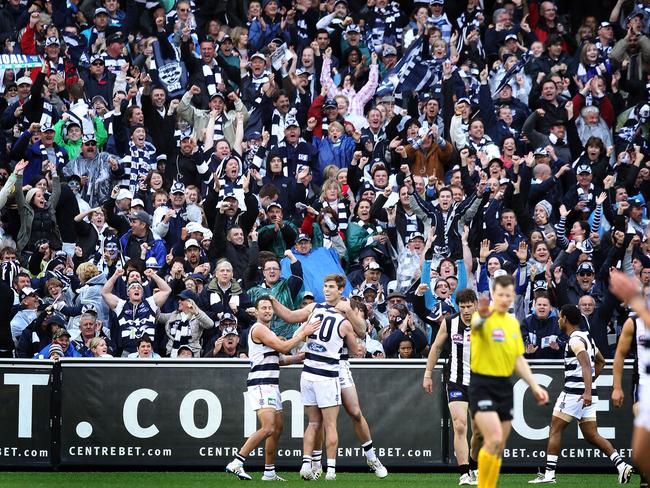
EMBRACE THE NERVES
The nerves are there for a reason, but don’t be weighed down by them. Embrace them if you can because you won’t be the only one feeling them.
I’ve seen seasoned players who haven’t necessarily had great finals in the past continue to not have good finals. I can only really put that down to the self-doubt in their minds.
I was lucky enough to be a bloke who never got too nervous before games. Fortunately, finals came after three seasons, so I felt as if I belonged there, and that’s the image you need to project — even if you don’t feel it internally.
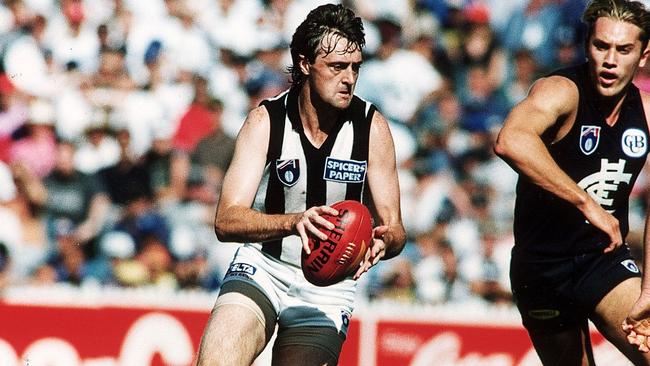
GET YOUR HANDS ON THE BALL EARLY
Most people and coaches will tell you to ease your way into a final and just let the game come to you.
I don’t subscribe to that theory. In my view, it is important to get a touch as soon as possible.
I’ll never forget the two text messages I received before my first Grand Final, the 2007 playoff. One came from one of my childhood heroes, Peter Daicos, wishing me luck. The other was from Mick McGuane, who I loved watching as kid growing up as a Collingwood fan.
Mick’ wrote: “Go and get your hands on the footy nice and early just to let yourself settle in.”
I did exactly that as soon as the game started. I even went up as far as half back just to get my hands on the ball. There is no doubt in my mind it did settle me early.
There is always extra pressure in finals, and it can take players — even experienced ones — time to settle into the contest. But if you get used to the tempo early, it can set up a big game for you and the team.
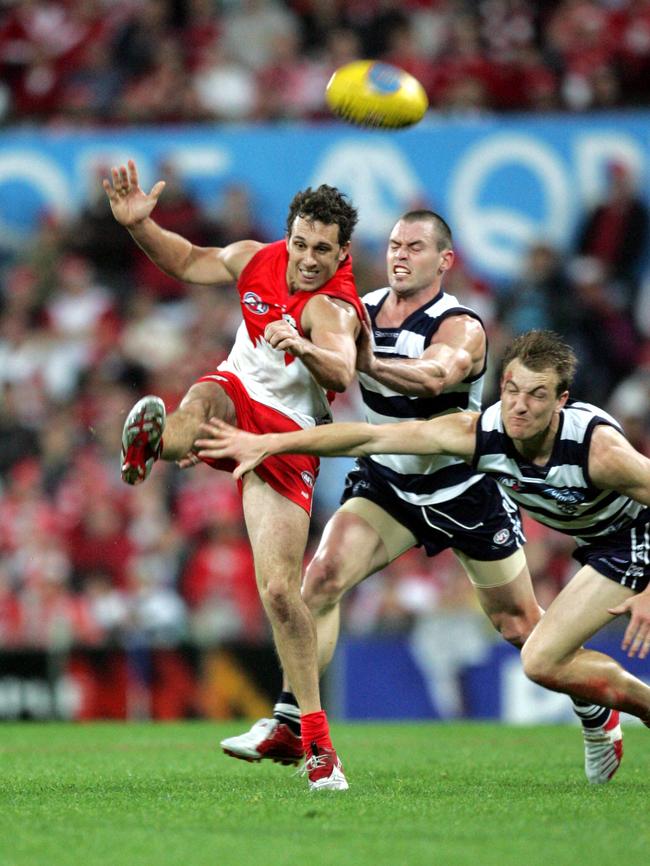
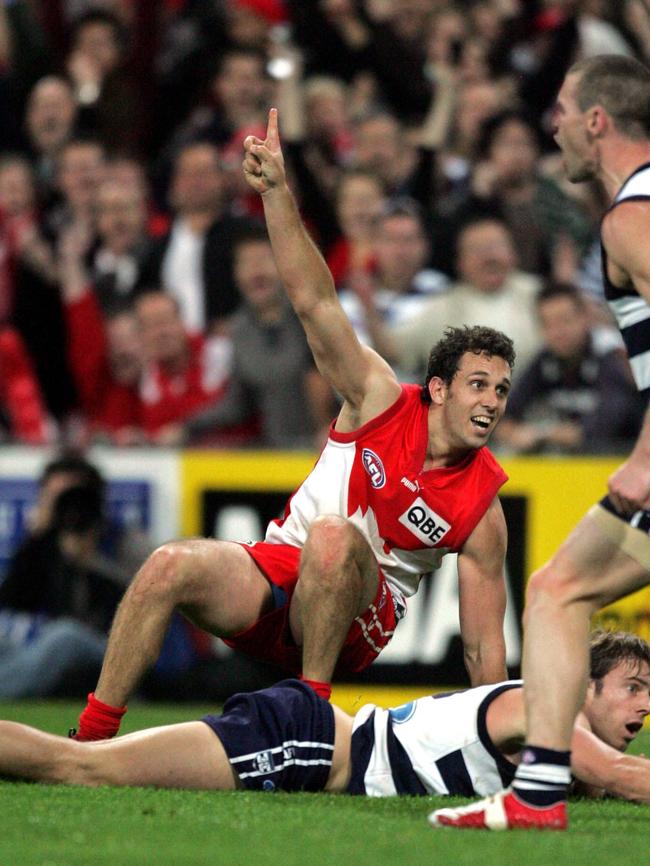
OWN THE MOMENT
Brendan McCartney used to have a saying when he was an assistant coach at Geelong: “If you not having a good night, don’t have a s--- night”.
What he meant was that things don’t always pan out the way you want them to. But the important thing is that even if it isn’t your night, it could still be your moment — with one passage of play, one spark, and one tackle or chase.
Basically, he was talking about staying in the game when it wasn’t going your way.
Those words are so relevant for every member of the team.
Part of that is not letting your mind wander. You need to keep the concentration levels high.
Nick Davis did that in that final quarter against Geelong in the semi-final of 2005. He made something out of nothing, and it not only turned the game, it was the catalyst for the Swans breaking a 72-year flag drought.
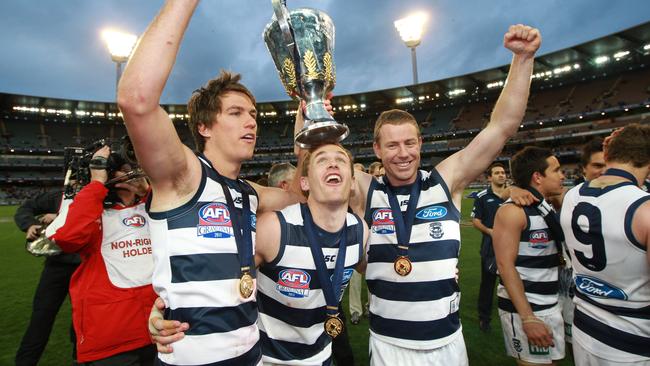
BE STRONG, DON’T SHOW ANY SIGN OF WEAKNESS
Body language is everything in finals. Opposition preys on weakness. Don’t show any, even if you are feeling vulnerable.
If you make a mistake, move on from it quickly. Reflecting on an error on game day in a home-and-away game doesn’t help your next moment, let alone in a final when you know the whole football world is watching you.
You have to project a confident manner for your teammates, too. They will be reading your body language just as the opposition will be.
I have always exaggerated how good I was feeling. That can sometimes be mistaken for arrogance but I believed others were impressionable and if they can see you with an air of confidence, they might walk taller.
That’s the way I was before the 2011 Grand Final when I had that knee injury. I told everyone I was fine, even though I would go home thinking: “There is absolutely no chance I can get up”.
I always knew too that if I looked around at Matthew Scarlett, Joel Corey, Cameron Ling, Paul Chapman, and others, at any stage of the game, they appeared confident.
We didn’t even need to talk. Eye contact was enough to realise they were “on”.
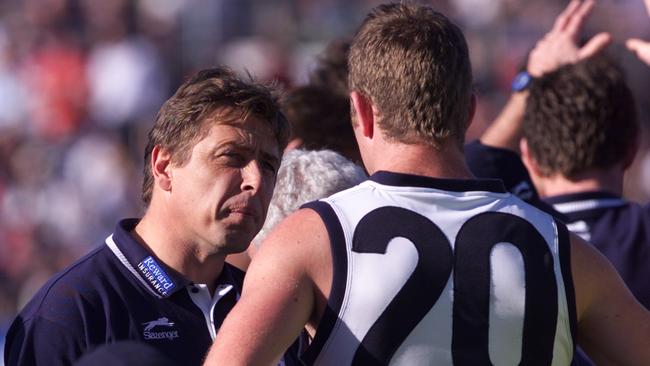
REMEMBER ONE CLEAR MESSAGE FROM THE COACH
You can get overloaded on information leading into a game, but my goal was to always focus on one message from the coach.
Macca (McCartney) and Bomber (Thompson) would always say before finals — “you need to come back to the ball because we need numbers around the contest:”
In finals, there are so many mistakes because of the pressure. If you spend your time waiting and hoping for the ball to come to you, it may not.
Coming back to the ball is going to give you your best chance of getting involved in the game, whether it be providing an option or being within striking distance of making a defensive effort.
That’s something I took away from the coach, and I’ve never forgotten it.
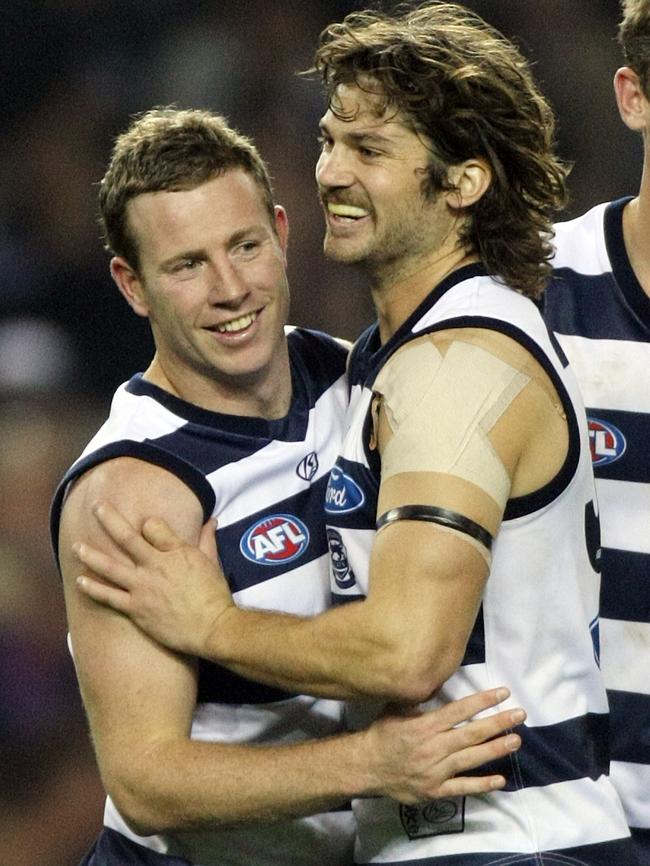
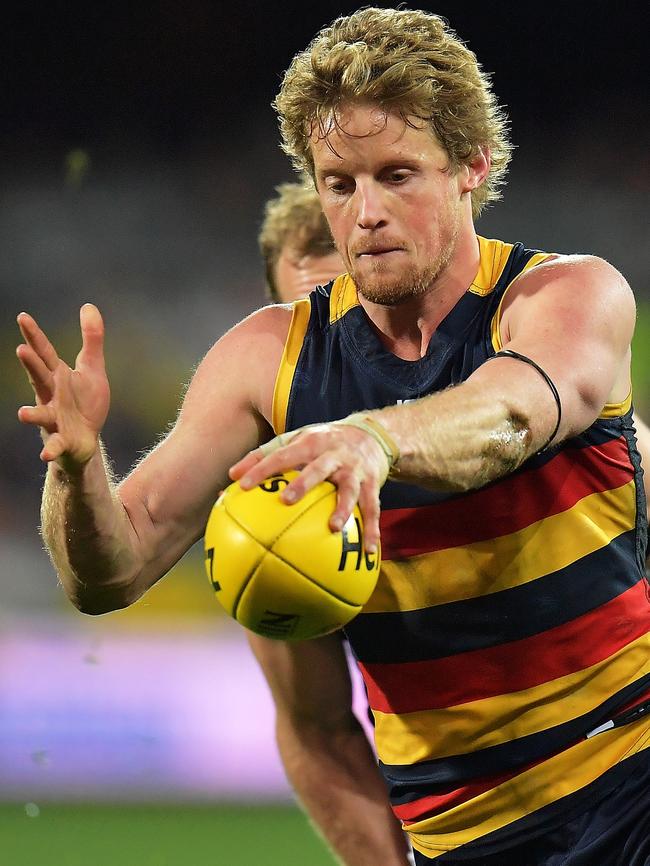
DO THE LITTLE THINGS
Try and fulfil one aspect of your game you know the coach will love. It may be an intangible that no one other than the coach, or your teammates, know about, but do it, and do it well.
Take Rory Sloane when he was being tagged a few months ago, and copping criticism for the way he was dealing with it. I looked closely and noted a few things others may not have.
You could see him take his tagger to force a 2v1 and freeing up a teammate to get the ball. It might not appear on the stats sheet, but it can make a huge difference to the team.
Max Rooke used to do the little things so well at Geelong. He may not have had the biggest reputation outside the club, but he did internally, particularly in finals.
He never had huge stats, but was a barometer of our team at the time. Those players willing to do the little things in finals and risk their own reputation are gold. Max was like that.
Just one last piece of advice — enjoy the experience, and try and have some fun.
Finals are not a God-given right, and they aren’t there forever. So embrace it, and give it everything you have got. I promise you it will be worth it.
Originally published as Exclusive: Steve Johnson’s guide to surviving the AFL finals

